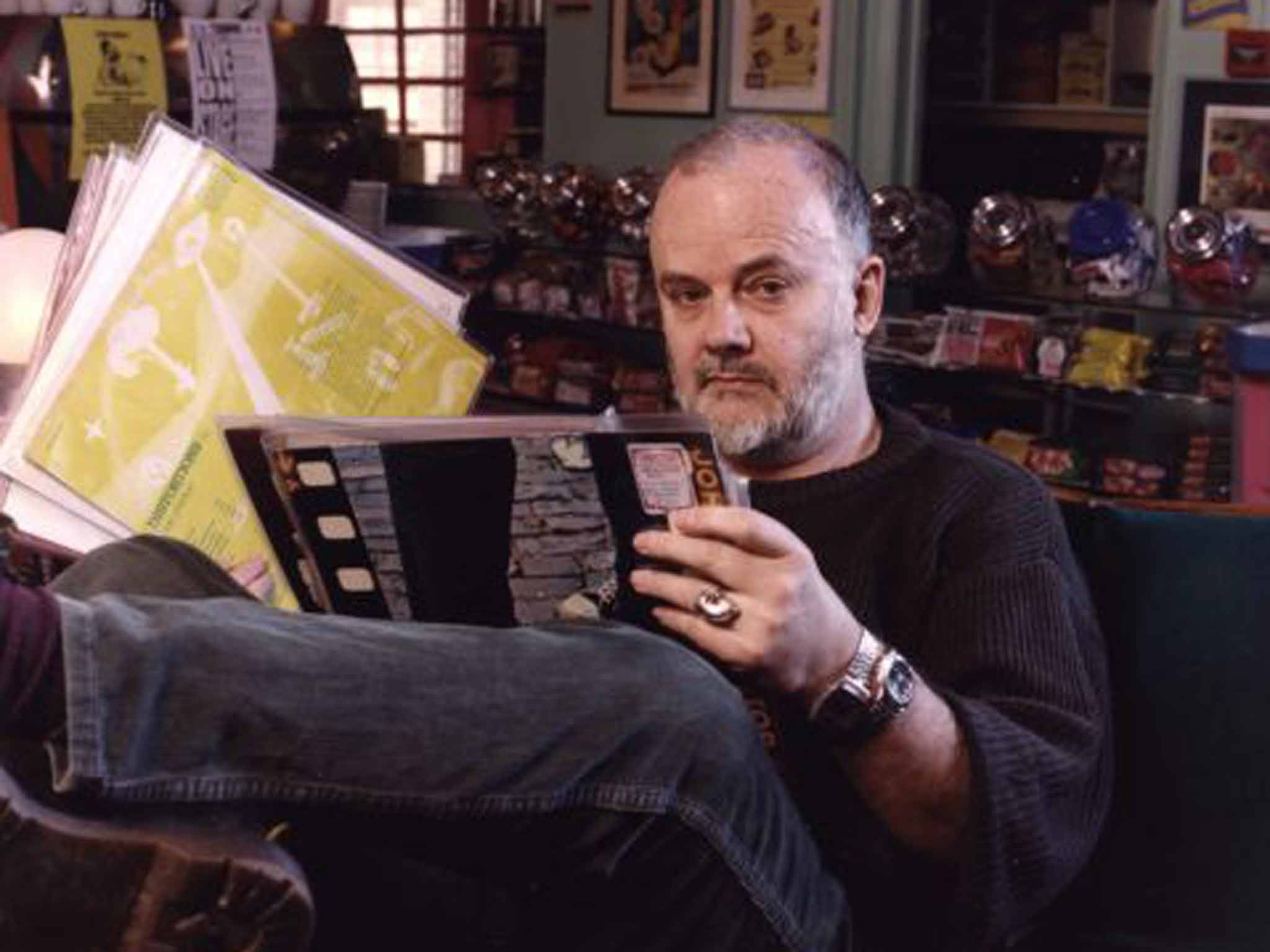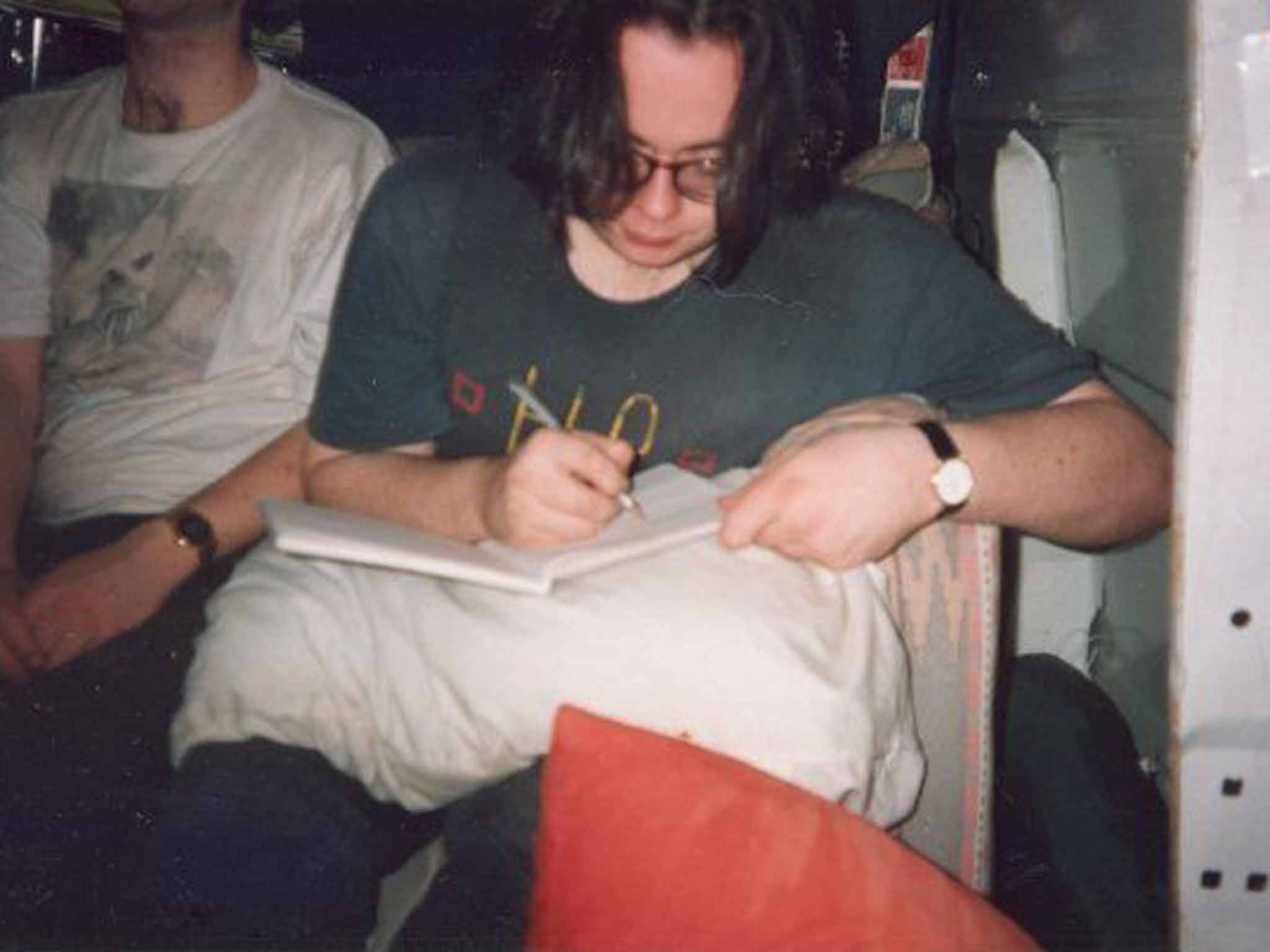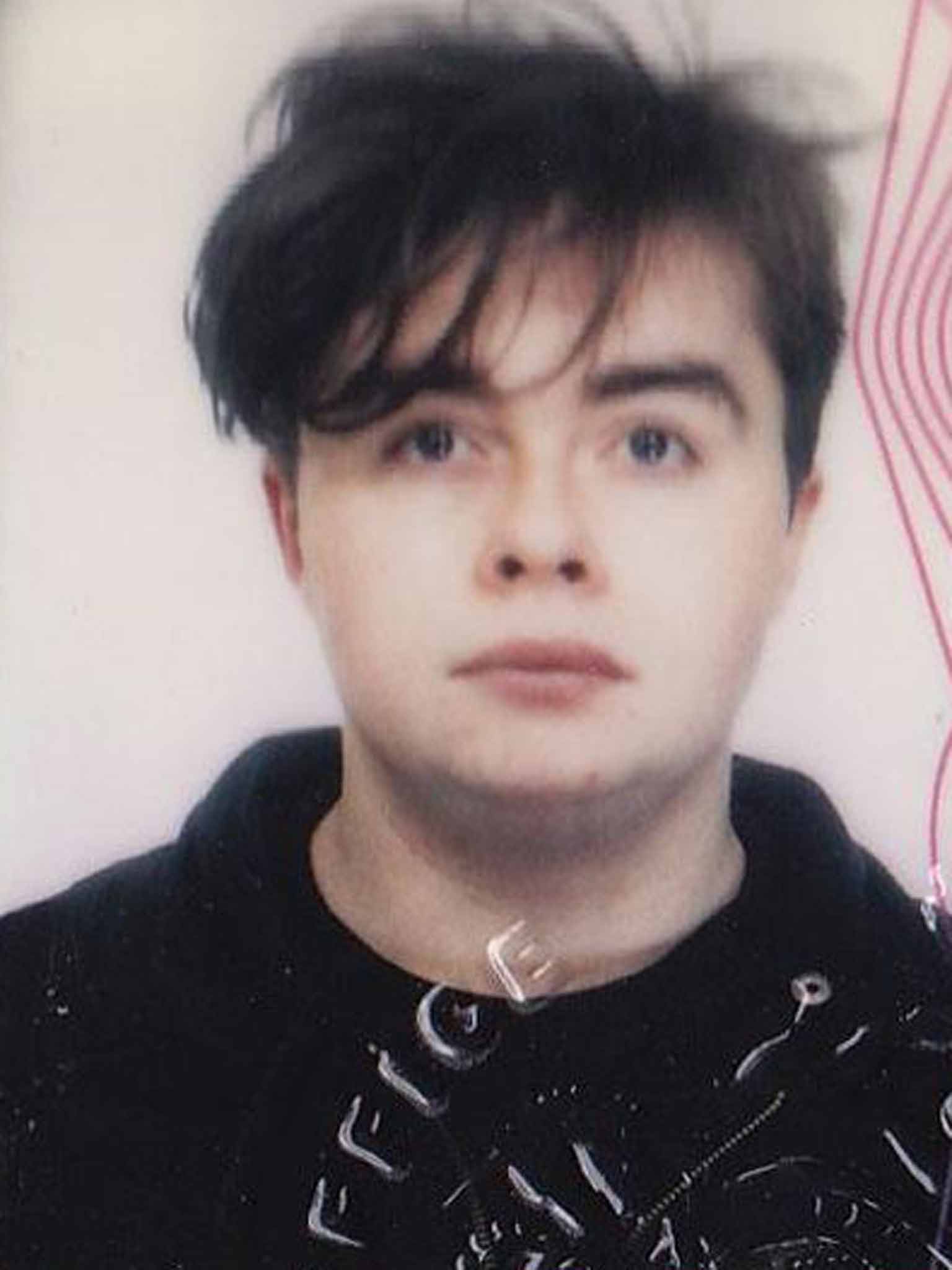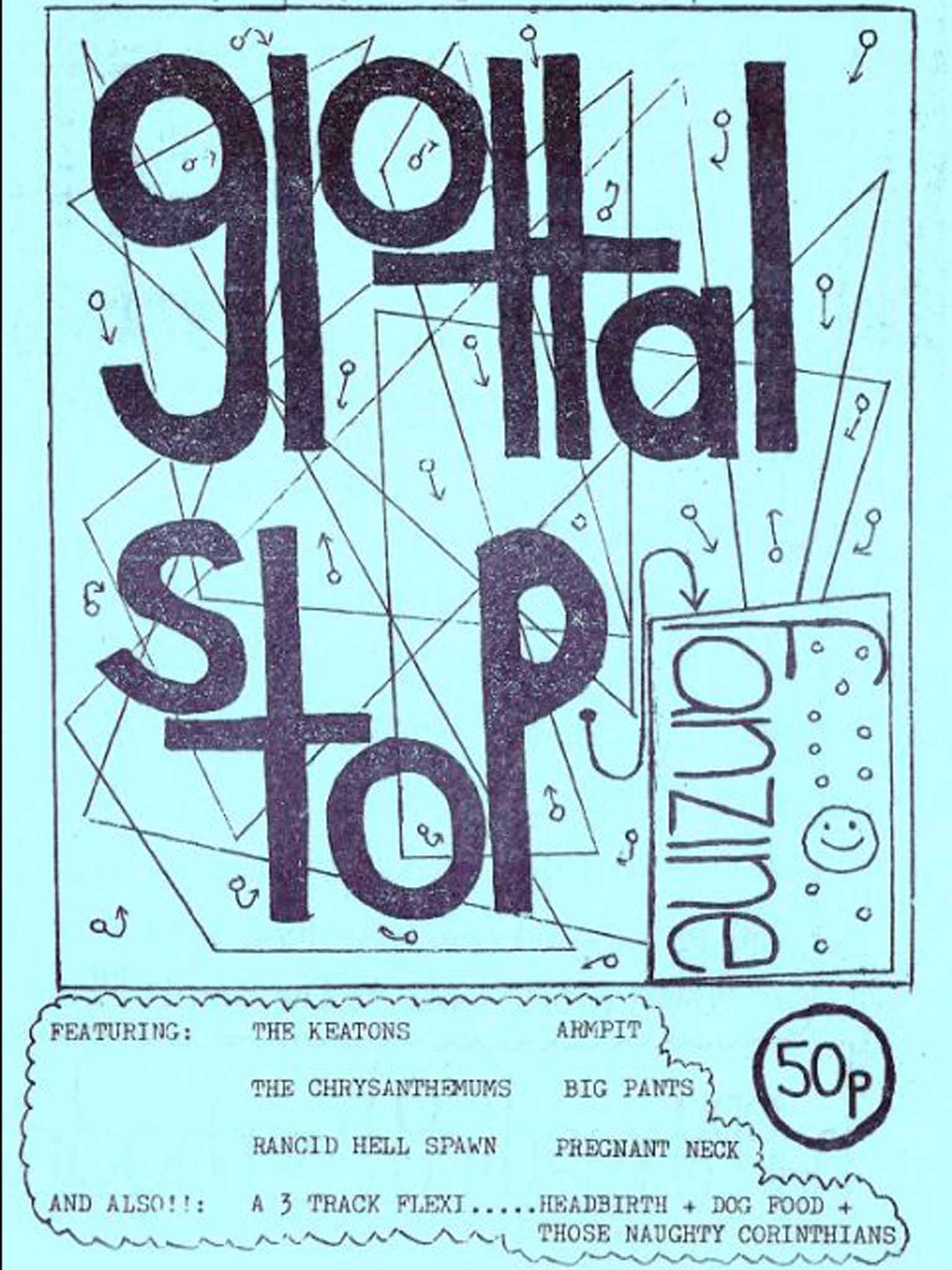When John Peel interviewed Rhodri Marsden: Goth jokes, fanzines, and a whole musical sub-culture
Generations of teenagers were introduced to alternative sounds by the late radio DJ – among them, the musician and Independent columnist Rhodri Marsden. But how, aged 17, did he find himself facing the bearded one across a BBC studio in East Anglia?

Your support helps us to tell the story
From reproductive rights to climate change to Big Tech, The Independent is on the ground when the story is developing. Whether it's investigating the financials of Elon Musk's pro-Trump PAC or producing our latest documentary, 'The A Word', which shines a light on the American women fighting for reproductive rights, we know how important it is to parse out the facts from the messaging.
At such a critical moment in US history, we need reporters on the ground. Your donation allows us to keep sending journalists to speak to both sides of the story.
The Independent is trusted by Americans across the entire political spectrum. And unlike many other quality news outlets, we choose not to lock Americans out of our reporting and analysis with paywalls. We believe quality journalism should be available to everyone, paid for by those who can afford it.
Your support makes all the difference.The studios of BBC Radio Cambridgeshire weren't as glamorous as I thought they might be, which might sound weird in a post-Alan Partridge era, but this was 1989 and I was 17 years old. I was yet to discover cynicism. I was regularly convulsed with excitement at the prospect of pretty much anything.
On that particular Sunday evening I walked into a surprisingly small, dimly lit room and was greeted gruffly by John Peel, the Radio 1 DJ whose broadcasts I'd become faintly obsessed with over the previous couple of years. Thanks to an unlikely sequence of events, he was about to interview me. Not me him; him me. Amazing. I sat down and fiddled with a pen, and while a record played he opened some letters. One listener had sent in a joke; I decided this was a good opportunity for me to break the ice, off-air. "Oh – have you heard Mark E Smith's goth joke?" I asked, in reference to the lead singer of his favourite band, The Fall. "No," he said, "Let's hear it." "Erm..." I replied, suddenly uncertain whether Mark E Smith actually had anything to do with it.
"OK, how many goths does it take to change a lightbulb?" "Go on," he said. "None," I replied, "they'd rather sit in the dark." "Very good," he said. I was evidently hilarious. He liked me. Things were going well.
Who knows why we end up liking the music we do. Some people feel so moved by the sound of "New Year's Day" by U2 that they imagine themselves standing atop some bleak, windswept hill, the rain driving into their tear-stained faces as they mourn lost love and ponder the cruelty of life. Other people hear the same song and say, "Barry, could you turn that shite off?" Each of us travels in a unique musical direction, gently steered by our upbringing, our moodswings, how we want to be perceived and, perhaps most significantly, the preferences of people we think are quite cool.

Near where I grew up in Dunstable there lived a family with four boys, teenagers, the eldest of whom became something of a local musical guru. He would return from university in the summer with armfuls of exotic records by bands I'd never heard of – the Very Things, Bogshed, the Bhundu Boys, the Weather Prophets, Colourbox... The realisation that recorded music extended beyond the charts and into unfamiliar, unconventional territory was thrilling. When I showed some curiosity, he told me that John Peel – a man who was, unbelievably, older than my parents – would be my unlikely guide.
When people describe their teenage memories of listening to Peel's Radio 1 show, it's usually past their bedtime, the lights are off and they're under the duvet with headphones on listening to a session by Christians in Search of Filth. Same here. From the age of 15 that's what I did, soaking up music like a sponge, from hip hop to speed metal, from Zimbabwean chimurenga to winsome indie jangle. Peel's "anything goes" approach meant that he became the preeminent promoter of a DIY aesthetic.
Most other radio shows gave the impression that making music required supreme skill, unlimited cash and sexy trousers, but Peel's made you realise that we could do it too. Music produced by the people, for the people. The realisation that ordinary folk were making extraordinary sounds was hugely galvanising, and was made even more potent by the fact that this music felt almost rationed.
Getting hold of it was hard and it took ages. When the records arrived, we made the most of them. In retrospect, a lot of them weren't even that good, but we put effort into their appreciation. Today, that makes for a rather intense form of nostalgia. There's only so much sub-duvet listening a teenage boy can do. Eventually he has to get out there and see it happening in the real world, but bands never came anywhere near Dunstable. In the summer of 1988, however, I discovered that there was a gig happening about 20 miles away, a Peel-esque double-bill of (wait for it) Dog Faced Hermans + Bastard Kestrel. I asked my dad if I could go. He paused, and he asked how I was going to get there, and I said I had no idea, so he said that he'd take me, because he's a generous chap.
So we ended up standing in a rough old pub in Bedford watching the singer of Bastard Kestrel screaming his head off, me open-mouthed, my dad standing next to me in shirt and tie, all 6'6" of him, arms folded solemnly. It was a weird old scene. Bastard Kestrel fans, with their DMs, ripped T-shirts and pierced noses, may have been tempted to laugh. But they didn't, maybe because my dad was bigger than they were.

Watch Apple TV+ free for 7 days
New subscribers only. £8.99/mo. after free trial. Plan auto-renews until cancelled

Watch Apple TV+ free for 7 days
New subscribers only. £8.99/mo. after free trial. Plan auto-renews until cancelled

Peel's Sunday night radio show was only broadcast across the East Anglia region, but it felt like everyone would be listening, not least my dad, who once again had gone out of his way to drive me there and was sitting patiently in reception awaiting his son's radio debut. I was told to put a pair of headphones on and I meekly obliged. "This is one of the first interviews in the course of these exciting programmes," began Peel, "and after I did the first one I got a letter from Dunstable, Bedfordshire, from Rhodri. And I must admit that I thought that Rhodri was an assumed name, but this turns out not to be the case. Welsh." "Indeed, yes," I replied, barely audibly. That was my opening gambit. No zinger, no one-liner, no springboard for further discussion. "Mm, right," said Peel, hurriedly moving things on. "So, in the letter, you said that you were starting to work on a fanzine. What made you decide to do that?"
My attempt to answer his question was so stilted that I can't bring myself to transcribe it, but I told the story of how, at that gig in Bedford, I'd picked up a photocopied bundle of paper for 50p with the words Rabid Turtle on the front cover. This hand-made fanzine was crammed with enthusiastic dispatches from the grubby end of the independent music scene – interviews, recipes, reviews and unsophisticated musings about life in general. It was the written counterpoint of DIY music, and I knew I could channel my excess energy into something like this. I didn't have the resources to form a band, but I could definitely type.
I called my fanzine Glottal Stop – something to do with my mum's dislike of the way local kids pronounced their Ts – and I started hammering on her typewriter, wanging on about anything and everything related to the music I loved. I cut the resulting bits of paper up and stuck them on to other bits of paper along with pictures I'd cut out from other bits of paper. I arranged this series of haphazard collages into some kind of order and sent them to Hamish, an anarchist from Shropshire who, I was told, had some rudimentary printing facilities.
The interview continued on its excruciating path. "So, if you don't mind me asking," said Peel, "how old are you?" "I'm 17," I replied, unimaginatively. "So, what do you do apart from doing fanzines?" I thought for a moment. "I'm doing my A levels." It never occurred to me to prepare before going on air or have any idea of what I might want to say. As a result I had nothing to say, and the things I did say could only just be heard. Peel pressed on, stoically. "So, how do you go about it?" he asked. "Obviously, I read a lot of fanzines," he continued, "but I haven't got the slightest idea where to start or what to do. Describe the process by which this arrives in our hands." "Well," I mumbled, "basically you just do all your pages on A4 and send them off to the printers."

I sensed Peel's slight exasperation. The youthful exuberance of my fanzine was failing miserably to extend to my on-air chat.
Hamish had told me that he could print 300 copies of Glottal Stop for £60. I didn't have £60, but my dad did. He lent me the money and gave me a plastic tub into which I would, in theory, place the hundreds of 50p pieces I'd receive for selling it. The economics of the whole enterprise were deeply flawed; even before I started I'd run up a huge bill with British Telecom by calling tiny bands all over the UK to tell them that I thought that they were great and could they possibly send me some artwork to bung in the fanzine. In the end my parents put a lock on the phone.
"So this ringing up…" said Peel, when I alluded to it on air. "Knowing that your dad is sitting outside in reception, is having a fairly indulgent parent an important part of fanzine editing? Because presumably at some point there'll be a phone bill." "Yeah," I muttered, "that's the only problem." "And that," Peel chuckled, "is why you want to be let out through the men's toilet window disguised in 17th-century French court costume and start a new life elsewhere."
I'm not sure what possessed me to write to John Peel at his home address in Suffolk, grandly informing him that I'd written a fanzine and was about to send it off to the printers. I've retained almost none of that ability to abandon any feelings of inadequacy and dare to bother people more important than myself with matters of little interest to them. But a few days later I received a letter, postmarked Stowmarket, and in Peel's loopy handwriting he asked me to call him to arrange an appearance on his radio show. I could scarcely believe what was happening. As I was piecing together these memories, I spoke to my mum to ask what she thought at the time.
"Well, I had no idea what you were getting up to in your room with the typewriter," she said. "But when you went on the radio I think your sister thought you were going to be famous."
Fat chance. I would soon abandon fanzine writing, and in the ensuing years I ended up in a series of bands that, in a commercial sense, were all wilfully and fatally compromised. Having demonstrated that even the most awkward music could be appreciated by somebody, Peel effectively encouraged us to have a misplaced confidence in our own ridiculous quirks.
A whole sub-culture was making music inspired by the unusual tastes of one middle-aged man on the radio, and all those resulting genres were unified by a carefree spontaneity; rehearsing was liberating, performing was confrontational and watching other people do it was gloriously confusing. "What WAS that?" I'd wonder to myself after witnessing a band comprising a euphonium, distorted bass guitar and someone declaiming confessional beat poetry while stood on a stool. It was hard to come up with an answer.
"So, how much is this fanzine?" asked Peel as the interview wound up. "50 pence," I said. "But do you need a stamped addressed envelope?" "Oh, yeah... A5 size, please." "It's a good thing I'm here to remind you about these things," he said, "otherwise any small profit you might make you'd have lost." In the days following the broadcast, I received precisely three orders for Glottal Stop. Three 50p pieces to put in my dad's plastic tub. I had more luck at gigs; I'd march up to people, ask if they wanted to buy one, and usually they'd say yes.
Right now I'm peering hesitantly at issue one of Glottal Stop, and can honestly admit that it's unreadable, a teenage brainsplurge that reverberates with naivety and cliché. But back then I was proud of it. It somehow legitimised this arcane interest I'd developed in weird music. "Look," I could say, waving it about, "this reflects the cultural importance of bands you've never heard of."
But more importantly, that neatly stapled document of my late teenage years ended up forging alliances that felt strong and still feel strong today. Largely unconcerned with critical acclaim or sales, many of the musicians I wrote about and hung out with in 1988 are still doing their thing, and much of that has to do with one Liverpudlian bloke with a beard.
The emptiness that lots of us felt when Peel died in 2004 had little to do with what he was like as a person; it was because our lives were inextricably connected to each other via him. While hurtling along the narrow paths he'd unwittingly sent us down, we swapped letters, cooked up plans, bonded, fell in love and created wonderful things. He partly defined us.
"Thanks very much for coming in," concluded Peel at the end of the segment, "and thanks very much to your dad for bringing you up here." Bearing in mind the rather poor interview I'd just been semi-responsible for, his final words to me were exceedingly generous. "And if you feel like making your way up here again," he said, "to advise us on what's going on, or any developments in the magazine world, please do. Just phone up any time you like."
I never did phone again; deep down I knew I wasn't cut out for a broadcasting career. But I'd worked out that grasping opportunities that terrify you and worrying about the consequences later on is a pretty good strategy.
Otherwise you'd never have any stories worth telling.
Join our commenting forum
Join thought-provoking conversations, follow other Independent readers and see their replies
Comments